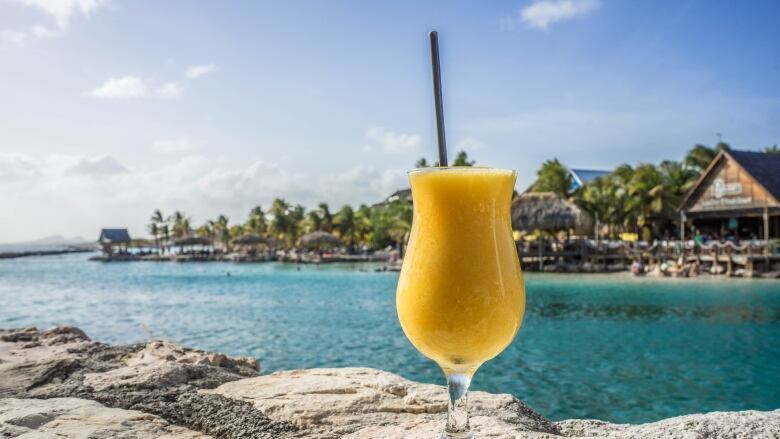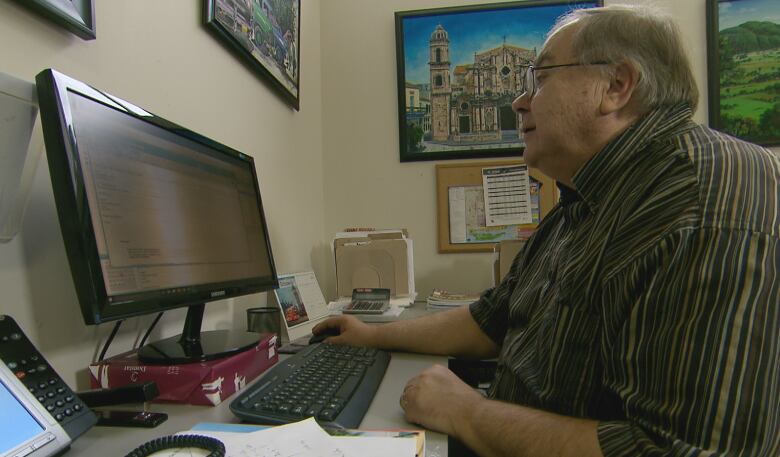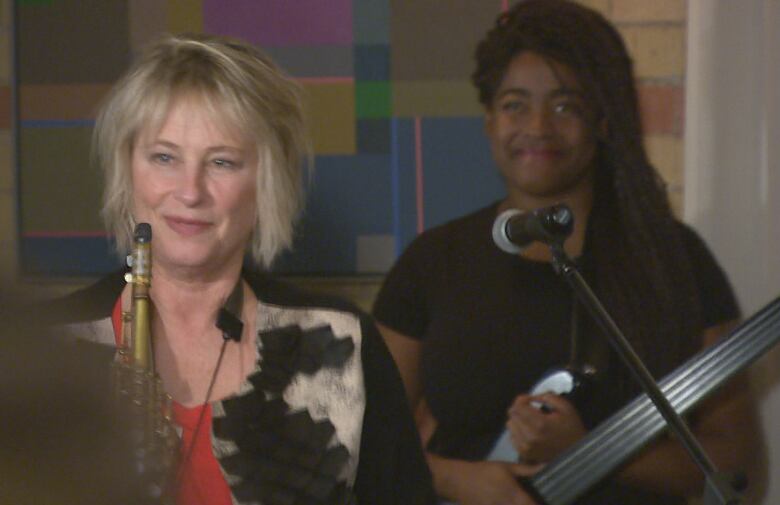Cuba's beaches this winter what to expect (not Americans)
But prices are already rising in anticipation of the day U.S. citizens can tan legally

Judging by traffic alone, Canadians and Cuba go together like rum and lime in a daiquiri. But some travellers are worrying that this winter, a new ingredient in the mix Americans will throw off the flavour.
"They feel that Walmart will come in, and McDonald's will come in," says Jury Krytiuk, a travel agent in Toronto who specializes in travel to the island nation.
No country on earth sends more tourists to Cuba than Canada:over 1.3 million last year more than the U.S. and Europe combined.

Travel restrictions were relaxed during the Obama administration, not removed entirely. Americans can only visit Cuba if their purpose falls into one of 12 narrow categories, such as educational purposes, humanitarian work, or religious activities.
But tanning? Still not allowed.
"None of those categories involve going to the beach," Krytiuk explains. "The U.S. government says you are to go and learn, not to have fun."
Trump could turn back the clock
On top of that, when president-elect Donald Trump was asked about Cuba in September during the election campaign, he said he may decide to reverse President Barack Obama's policy "unless the Castro regime meets our demands."
On Bay Street in downtown Toronto, the director of the Cuba Tourist Board in Canada tells CBC News that he's not sure what exactly Trump has in mind.
"I don't know what to expect," says Eloy Govea, "We have to wait and see. It's probably too early to know."
The future may be especially murky, but Cuba has already seen some changes since Obama's historic 2015 visit.
The 'stampede' to Havana
"It's really, really hard to get a hotel room in Havana," says celebrated Canadian jazz artist and two-time Grammy nominee Jane Bunnett, noting that the prices have shot up. She has been travelling to Cuba since 1982. "Even the pensiones the B&Bs the prices of those have gone up because they're in demand. Americans want to have that Cuban experience too."

"Canadians are basically laying on a beach, drinking a cocktail and that's about all they do," she says.
"That's a generalization of course, but a lot more of the Europeans go for cultural reasons. I've witnessed that first-hand in my travels. They want to know about the Afro-Cuban religion, they're very interested in dance, the Cuban song."
Krytiuk says there's been a "stampede" of Americans to Havana. The Cuban government has responded by jacking up hotel rates.
"You wanna sleep in the same bed that Beyonc slept in? Or stay where Madonna stayed, or stay in the same suite as the Pope?" he asks. "Those rooms are all available."
Some Americans sneak to the beach
And despite the official ban on beach visits, Krytiuk says some American tourists have been known to sneak away from their official, approved destinationto spend a few days at a resort.

As for prices, the president of Transat Tours says the international attention Cuba has received over the past 12 to 18 months has boosted demand in a big way.
"The prices are going up a little bit," says Annick Gurard. "Of course Cubans are trying to adjust that. They don't want to break or stop the volume of Canadians going down south."
The company has added flights to Havana every week out of Montreal and Toronto. "That allows our customers to have a more flexible vacation," Gurard explains. "Instead of going for sevenor 14 days, people are now able to go for a long weekend in Havana."
Meanwhile, over 100 development projects are in the works, according to the Cuban Tourist Office, many of them launched in anticipation of huge flows of American tourists. Golf courses, marinas and resorts are planned.
"Canadians will be able to benefit from all this improvement in the near future," says Gurard.
But that assumes the American president-elect doesn't throw a wrench into the works. A coalition of American business leaders is urging Trump to stick with the plan and move the U.S.-Cuba relationship forward, not backward.
One way or another, change is coming. But one thing that won't change is Canadians' desire to escape winter, and Cuba's desire to keep the Canadians coming.












_(720p).jpg)


 OFFICIAL HD MUSIC VIDEO.jpg)
.jpg)



























































































